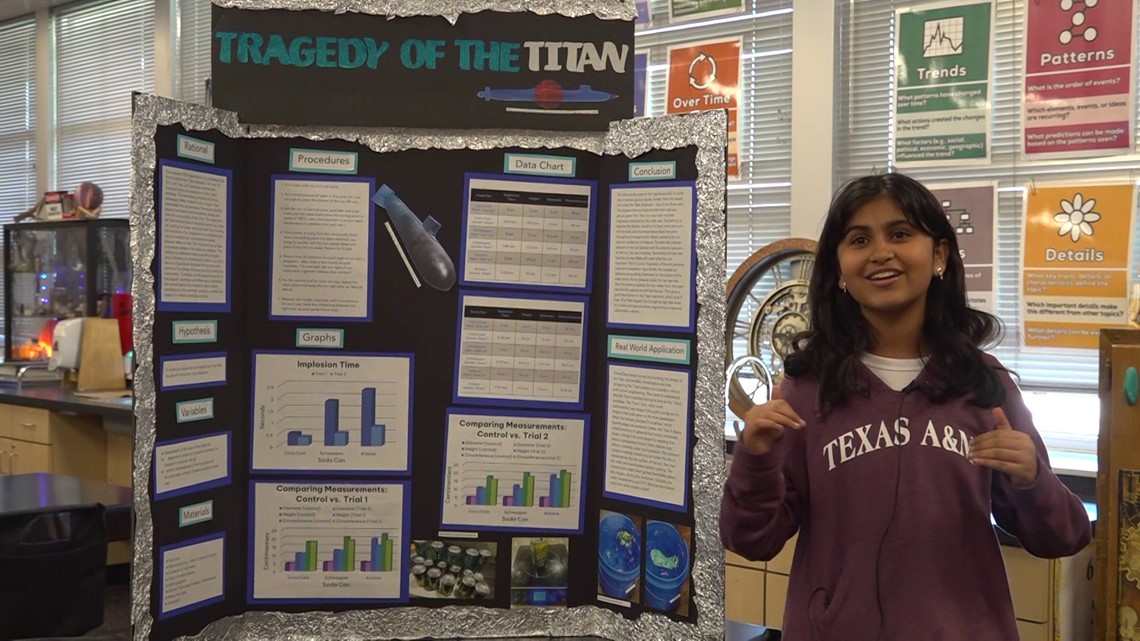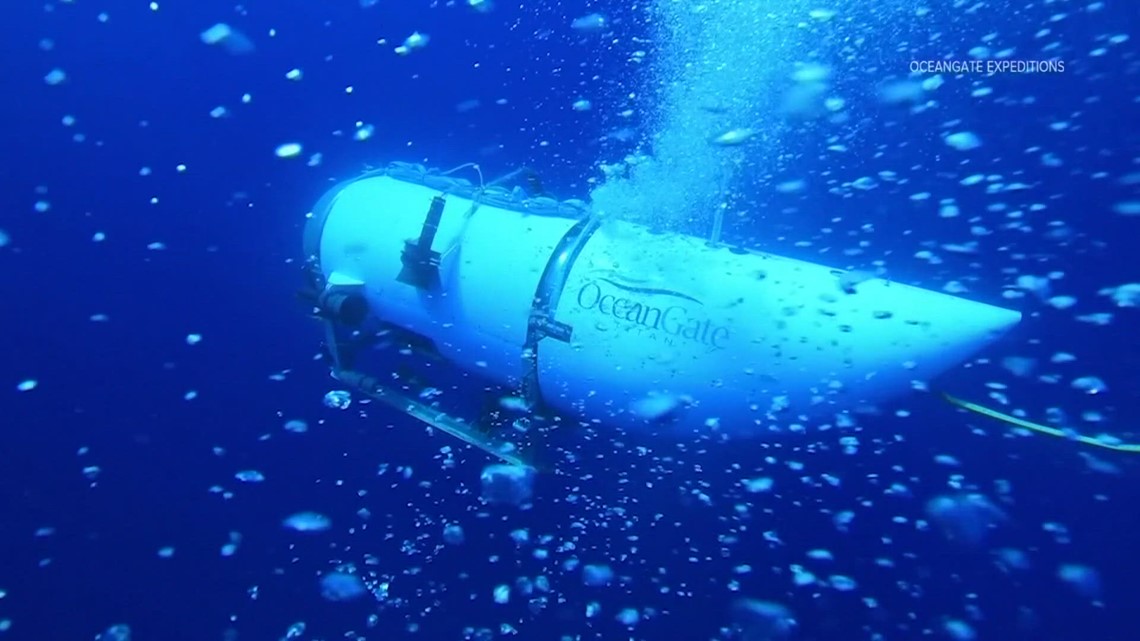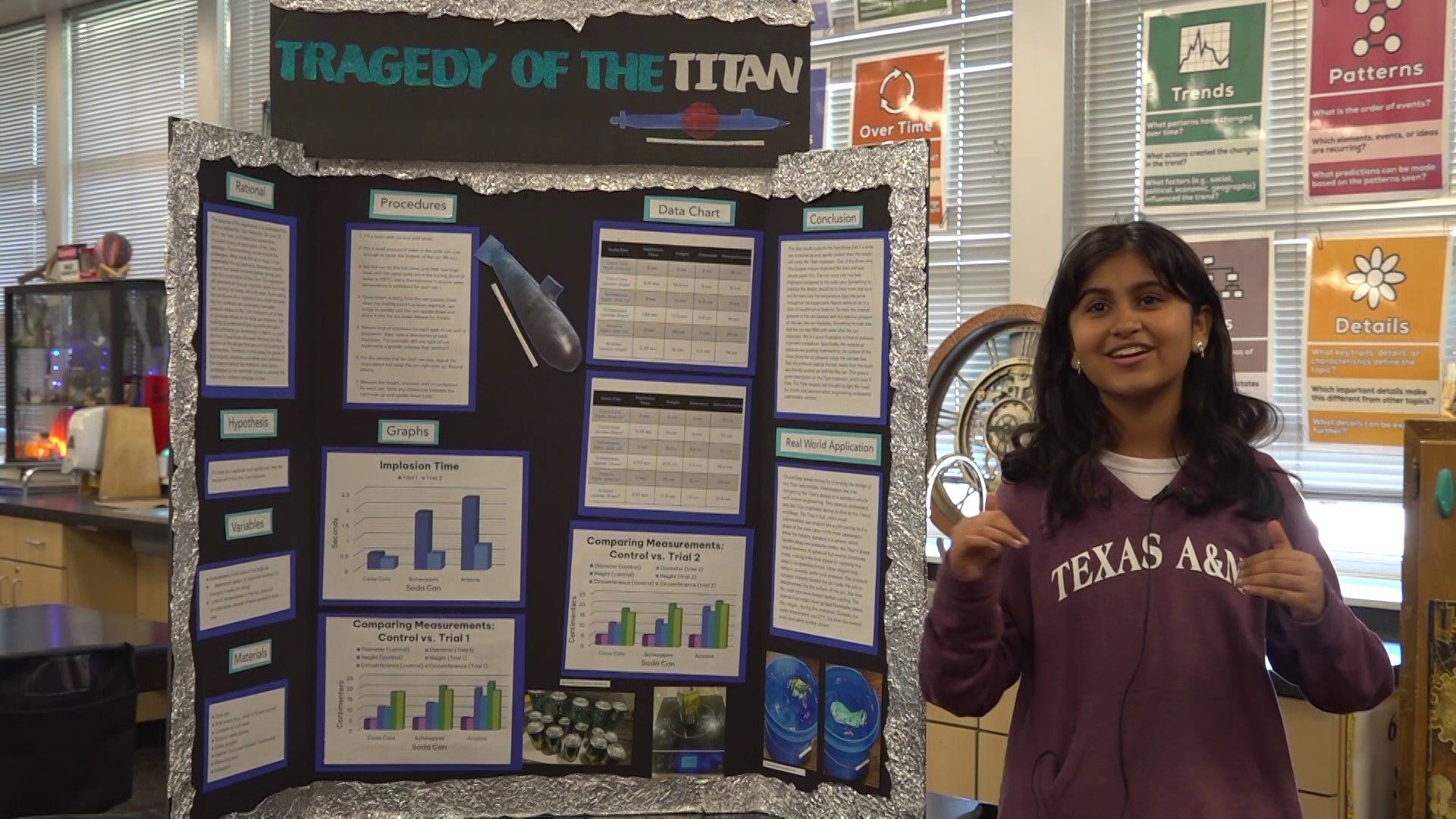MIDLAND, Texas — Are you smarter than a 6th Grader?
If you’re going against a student at the Carver Center in Midland, you might have your work carved out for you.
The kids in Mrs. Leesha Seidel’s 6th grade Science class live and breathe the Science Fair.
"This group were chomping at the bit," Mrs. Seidel said about her current class. "And they actually got a hold of me last year as 5th graders and I had to set up a summer Google class for them so that we could converse back and forth because they were already gunning for it [the science fair]. And then the very first day of school, ‘when are we starting the science fair?’"
And because these kids are gifted and talented, this science fair is no trip to the county fair.
"It's pretty hardcore research," Mrs. Seidel said. "They have to have five credible resources. They interviewed doctors, they talked with engineers, they will reach out to people say 'hey, can you help me? Can you give me your advice?'"
And for 6th grader Kecia Bajaj, she wanted to tackle a real-life question on something that tragically got national attention.


"On June 18, 2023, The Titan and Oceangates submersible imploded while exploring the Titanic wreckage," Kecia said. "Five passengers tragically died. What made this accident so tragic, was that many scientists said it was preventable."
"So Kecia came to me early on, and she wanted to really look at why the Titan imploded," Mrs. Seidel said.
"There were three main factors of why the Titan imploded: the shape, the size and the material that was used in the Titan," Kecia said. "And I was thinking, 'How can I do this as a scientific experiment?'"


And just because Kecia doesn’t have a submersible in her backyard, that doesn’t mean she can’t do her experiment.
"So basically what I did is I took soda cans and I imploded them by heating them up and rapidly cooling them with an ice-cold bucket of water," Kecia said. "So basically, my materials were soda cans, a bucket of water, a hot plate, tongs, safety gloves, glasses, stopwatch and measuring kit. I filled a bucket with ice cold water, and I took my soda cans and I filled it with 30 milliliters and I put it on the hot plate and heated up to 100 Celsius until I saw steam, I picked it up and I turned it upside down. And so then I started my stopwatch, I started when I pick it up from the hot plate and when it touches the ice-cold water since the implosions are so fast."
Her conclusion?
"My hypothesis was proven correct," Kecia said. "Before I heat up the soda can there's water and air and when I heat it up, the water inside pushes out all the original air so no air can come inside, and when it's upside down in the ice-cold bucket of water, the opening is sealed shut, no air could come inside."
Let’s just say Kecia’s project was one of the talks of the school.
So much so, she was one of 16 students from Carver to make it to the State Science Fair at Texas A&M on Saturday.
"I was like really shocked because I couldn't imagine myself going to state because I really didn't expect that," Kecia said. "And so when I went there, I was like, 'oh my God, there's so many people', like it took up two whole gyms to fill everyone up with their science fair boards. And I was like, 'this is going to be really scary and stuff.'"
And while she didn’t place amongst the 20,000 projects…
"But they [the judges] had a lot of things really good things to say about her project," Mrs. Seidel said.
And for someone in little old Midland, that’s not bad at all.
For projects that are seemingly difficult as this one, it would be easy to give up and try something else.
"They're like ‘I can't do this. This is too hard. I'm not qualified,'" Mrs. Seidel said. "But then as you just keep guiding them, you're like 'you can do this. Let's try this. Have you thought about this? By January when they are presenting, they're totally different kids. You know, they're standing proud. They're smiling. They're like, 'I did this' and I'm like, 'yeah, you did.'"
And if students like Kecia can do this in just the 6th grade, it might be safe to say the future of the Permian Basin is in good hands.

